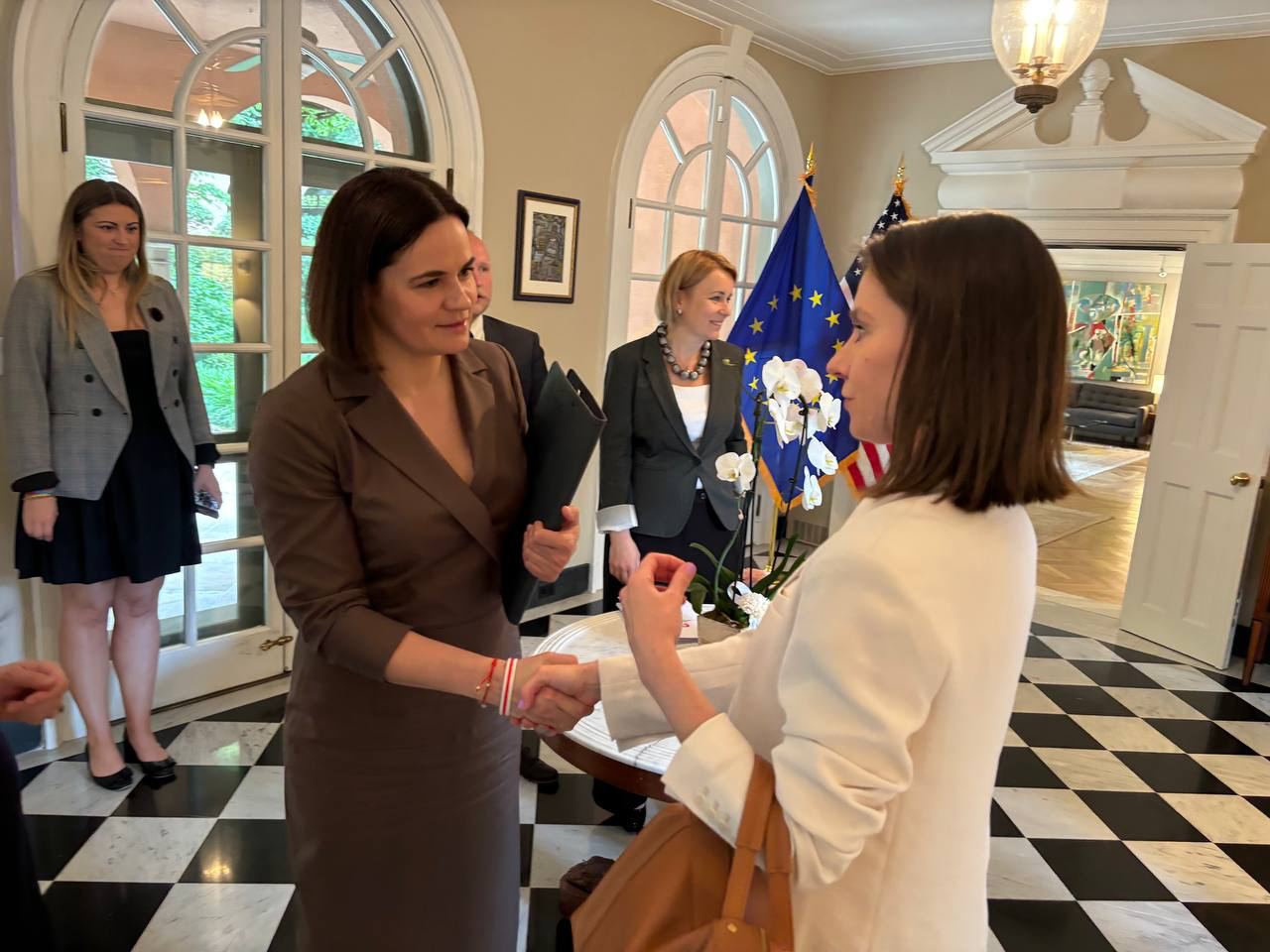Belarus Returns to the Agenda of the US and other G7 Members
 The situation has gotten better
The situation has gotten better

With the efforts of democratic forces in exile, the Belarusian issue is returning to the Western agenda while the world’s attention is focused on the “peace summit” on Ukraine in Switzerland.
Sviatlana Tsikhanouskaya made a visit to the USA. During her stay in Washington, she met with former Speaker of the House Nancy Pelosi and Senators Jean Shaheen, Dick Durbin, and Peter Welch, and also held talks with the US National Security Advisor Jake Sullivan.
Tsikhanouskaya emphasized the need for American leadership in confronting dictators, the importance of supporting the Belarusian democratic community, and pressing the regime to release political prisoners and end Belarus’s involvement in the war. The first meeting discussed:
– The new Act on Democracy in Belarus;
– A campaign to support political prisoners, possible steps for their release;
– Sanctions;
– Continuing and strengthening support for independent media, cultural, and human rights initiatives;
– Events concerning Belarus during the NATO summit;
– Support for Belarusians in the US.
Tsikhanouskaya called for distinguishing between the Belarusian people and the regime and preventing Belarus from becoming a consolation prize for Putin.
During the second meeting, with Sullivan, the sides discussed the need for comprehensive support for both Belarus and Ukraine. Tsikhanouskaya talked about our volunteers in Ukraine – and emphasized the importance of Ukraine’s victory for changes in Belarus.
The enhancement of pressure on the Lukashenka regime was also discussed. Tsikhanouskaya noted that sanctions should be loophole-free and aimed at freeing political prisoners – thus, restricting the regime and its assistance to Russia in the war. The leader of the Belarusian democratic forces also emphasized the importance of issuing visas and aiding civil society abroad. She stated that sanctions should isolate the regime, not the people.
In return, Sullivan expressed firm US support for the Belarusian people’s aspirations towards a democratic future. He indicated that America, together with its partners and allies, would continue to take steps to “hold Lukashenka accountable for his actions, including through the imposition of additional sanctions.” Plans for continuing strategic dialogue between the US government and the Belarusian democratic movement and civil society were also analyzed.
Tsikhanouskaya’s American tour continued with negotiations with ambassadors and diplomats from the G7 member states. During the negotiations, the following issues were discussed:
– Organizing a major campaign in the US for political prisoners, including a public letter to the UN Secretary-General from congressmen and senators;
– Expanding scholarships for Belarusian students and opportunities for their education in the US and other countries;
– Measures to strengthen sanction pressure on the regime and increase financial assistance to democratic Belarus;
– Locating and freezing Lukashenka’s assets in other countries, including the UAE;
– The regime’s role and responsibility in the war against Ukraine; cooperation between the Russian and Belarusian armies;
– Lukashenka’s cooperation with Iran, China, and other authoritarian regimes, and the consequences of this cooperation.
Thus, while the international community’s attention was fixed on the “peace summit” on Ukraine in Switzerland, democratic forces in exile tried to keep the Belarusian issue on the Western agenda.
Subscribe to our newsletter




Situation in Belarus
Constitutional referendum: main consequences


 Video
Video
How to count the political prisoners: are the new criteria needed?


 Video
Video
Paternalism In Decline, Belarusian Euroscepticism, And The Influence Of Russia


 Video
Video












